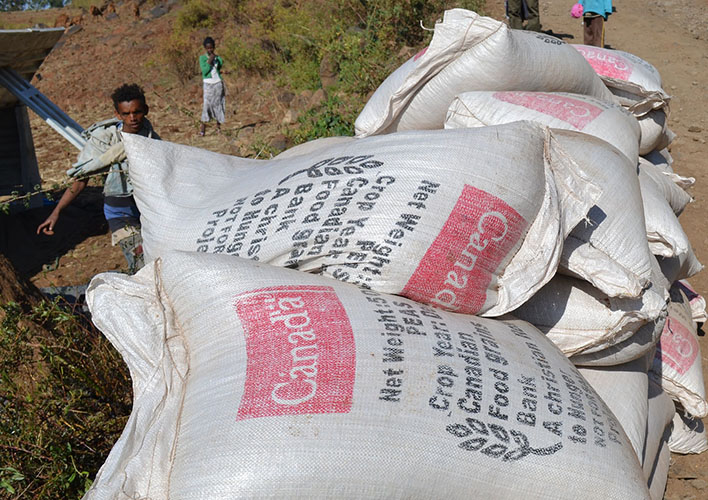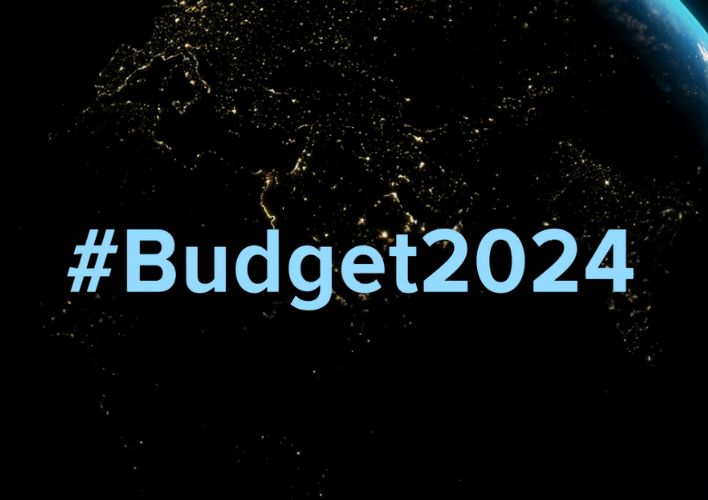The following article by Foodgrains Bank Director of Public Policy Paul Hagerman originally appeared in the March 27 edition of the Winnipeg Free Press.
The federal government recently released its 2017 budget, and organizations that work in international development are complaining there was no increase in foreign aid.
“Oh well,” you may say. “We send too much money overseas already. Better we spent it at home on Canada’s needs.”
Let’s pull that apart a bit to look at how much Canada spends on foreign aid and what we get for it.
Take a $100 bill, cash it in for 100 loonies, then change one of those into quarters. Set aside one of those 25-cent pieces. That’s about how much Canada allocates to foreign aid: 0.28 per cent of our gross national income (GNI), which is a measure of the size of the economy.
That’s near the bottom of Canada’s performance over the past 50 years, and only about half as much as the average of other countries with similar economies. Britain’s aid is 0.71 per cent of GNI and Germany’s is 0.52 per cent.
The Trudeau government talks about Canada as a leader on global issues, a country that is re-engaging with the world in a productive way and making meaningful contributions to solving global challenges.
Why should we support foreign aid anyway? What good does it do?
Yet despite a healthy economy at home, Canada is stingy when it comes to actual investments. Our track record was poor last year, and there is no sign of improvement in the 2017 budget.Why should we support foreign aid anyway? What good does it do?
That’s a question we deal with every day at Canadian Foodgrains Bank, and we don’t have to look far to find answers.
Humanitarian aid enables people to get through crises to rebuild their lives. The Foodgrains Bank is helping hundreds of thousands of people in Syria and neighbouring countries. At a time when they have fled from their homes, and their lives are in turmoil, we are helping them meet the basic need for food.
The need for humanitarian aid has never been greater, especially with famine or near-famine conditions in Yemen and three African countries.
Development aid enables people to improve their lives. Farming is the most common occupation for the poorest people in the world, so it makes sense to invest in small-scale agriculture.
On a visit to east Africa last year, I met farmers who are part of Mbuvo Commercial Village. Six years ago, they weren’t able to grow enough to feed their families. Now, with help from a Canadian aid program, they are growing more than they need and have invested their surplus in a small food-processing facility powered by solar panels. Of the 400 farmers who are part of the Mbuvo Commercial Village, two-thirds are women and many are widows. They told me how hard it was for widows to earn a living in their male-dominated society, making them especially proud of their accomplishments at Mbuvo.
Aid is not just a selfless act to improve lives. It is also in Canada’s best interest.
For example, in 2013, despite pleas from the United Nations and aid groups, the horror of the Syrian crisis was on the radar of few Canadians.
A Canadian reporter asked a Foodgrains Bank partner working in the Middle East why Canadians should care. He responded that first, the conflict was creating chaos in the region and allowing terrorist groups to flourish. Second, it was only a matter of time before war-affected people started showing up on Canada’s doorstep.
Four years later, we know the Islamic State group poses a threat to global security, and Canada has welcomed tens of thousands of Syrian refugees.
Aid is not just a selfless act to improve lives. It is also in Canada’s best interest.
Thinking we can safely ignore the Zika virus in South America or severe droughts in east Africa because there is no immediate effect in Canada is like saying, “Your end of the lifeboat is sinking. We can see you flailing around, but because we’re still dry, we’re not going to help.”
In late 2016, Canadian members of Parliament on two multi-party committees (finance and foreign affairs) recommended big increases in aid.
They recognized Canada’s future stability and prosperity are intertwined with the rest of the world’s, and the few coins we currently contribute to foreign aid are not enough.
–Paul Hagerman, Director of Public Policy
Interested in writing a letter to your MP, but don’t know how? Here are some resources to help get you started.



